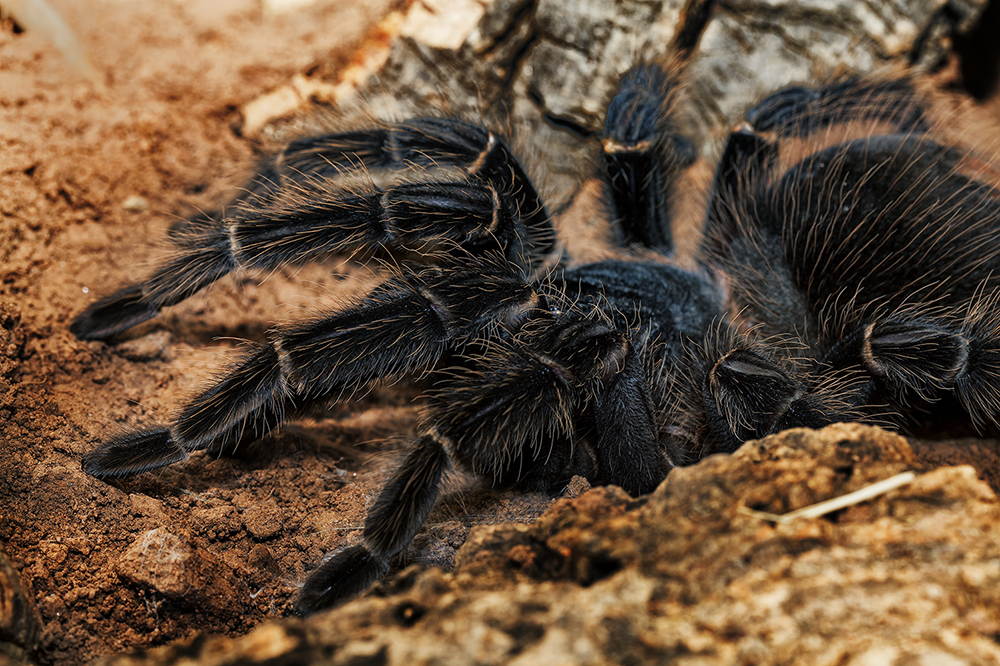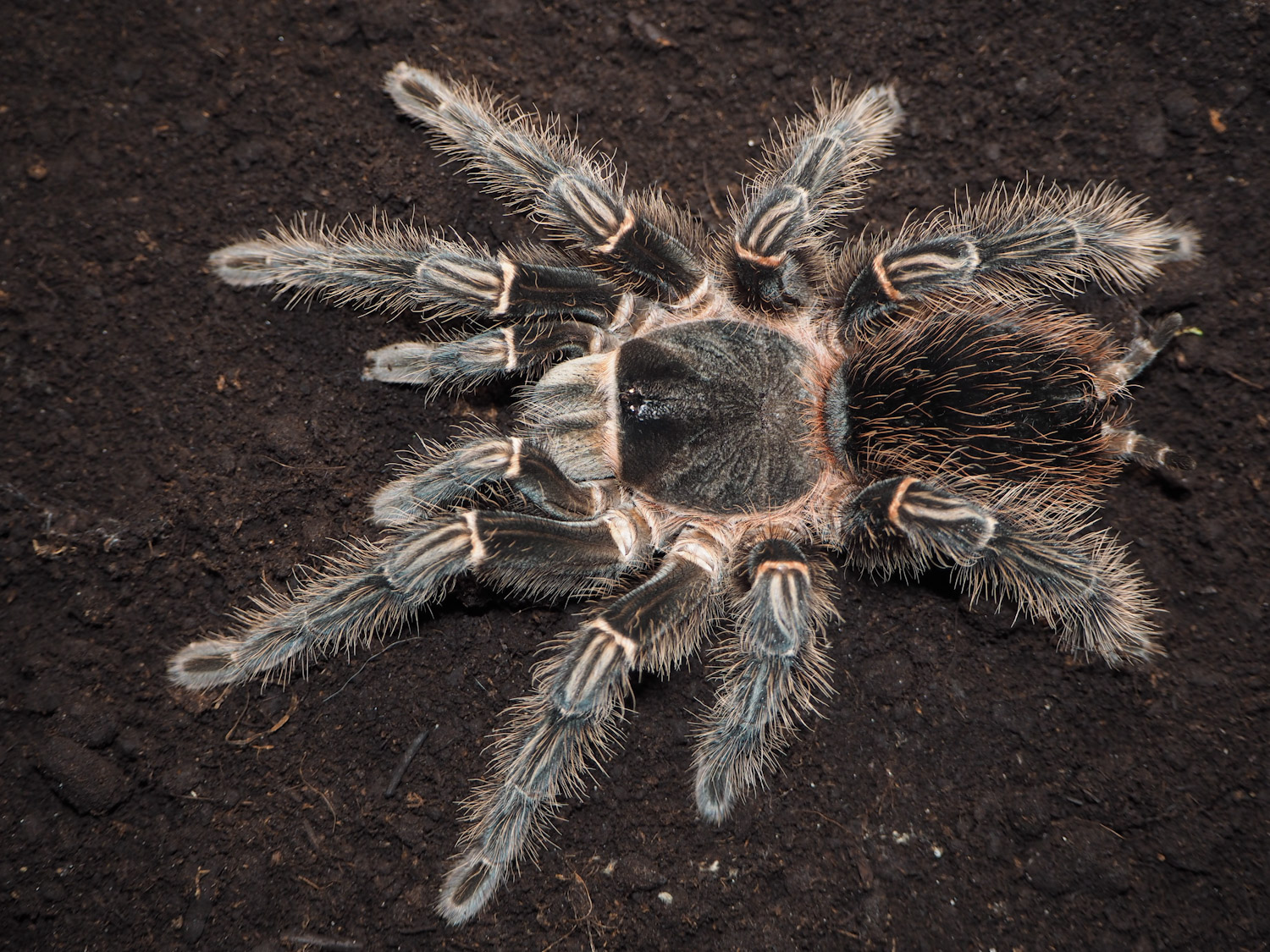Lasiodora is a genus of tarantulas that was first described by Ludwig Carl Christian Koch in 1850. They are often very large; body lengths of up to 25 centimetres (9.8 in), including the legs, are not unusual.
Diagnosis
This genus can be distinguished from other tarantulas by the presence of hairs used for stridulation on the upper area of the coxae of leg 1 and 2. Males also own a triangular keel below the apex of the palpal bulb, females also have a sclerotized (hardened by sclerotin) area between the two sections of the spermathecae.
Species
As of December 2023 it contains seven species, found in Brazil:
- Lasiodora benedeni Bertkau, 1880 – Brazil
- Lasiodora camurujipe Bertani, 2023 – Brazil
- Lasiodora franciscana Bertani, 2023 – Brazil
- Lasiodora klugi (C. L. Koch, 1841) (type) – Brazil
- Lasiodora parahybana Mello-Leitão, 1917 – Brazil
- Lasiodora sertaneja Bertani, 2023 – Brazil
- Lasiodora subcanens Mello-Leitão, 1921 – Brazil
Transferred to other genera
See also
- List of Theraphosidae species
References



